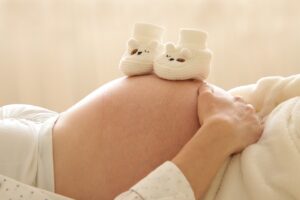
Pregnancy is an exciting and transformative time in a woman’s life, marked by numerous physical and emotional changes. One of the most crucial aspects of ensuring a healthy pregnancy is maintaining a balanced and nutritious diet. An optimal pregnancy diet plan not only supports the baby’s development but also helps the mother maintain her health and energy levels. This article outlines the essential components of a pregnancy diet, key nutrients, and tips for making informed dietary choices.
Understanding Nutritional Needs During Pregnancy
A well-balanced diet during pregnancy is vital for the health of both the mother and the developing baby. As the baby grows, the mother’s body undergoes numerous changes, increasing the demand for certain nutrients. Understanding these nutritional needs can help in planning a diet that supports a healthy pregnancy.
Increased Caloric Intake
During pregnancy, the mother’s body requires additional calories to support the growing baby. Generally, an additional 300-500 calories per day is recommended, especially in the second and third trimesters. However, it’s essential to note that these calories should come from nutrient-dense foods rather than empty calories.
Macronutrient Requirements
Carbohydrates, proteins, and fats are crucial macronutrients that should be included in a pregnancy diet. Carbohydrates provide energy, proteins support fetal growth, and healthy fats are vital for brain development.
Micronutrient Needs
Several vitamins and minerals are especially important during pregnancy, including folic acid, iron, calcium, vitamin D, and omega-3 fatty acids. These nutrients play a crucial role in fetal development and maternal health.
Essential Nutrients for a Healthy Pregnancy
Ensuring an adequate intake of essential nutrients is fundamental to a healthy pregnancy. Below are some key nutrients and their sources:
Folic Acid
Folic acid is a B vitamin vital for preventing neural tube defects in the developing fetus. It is recommended to consume 400-600 micrograms of folic acid daily through supplements or foods like leafy green vegetables, citrus fruits, and fortified cereals.
Iron
Iron is crucial for producing hemoglobin, which carries oxygen to the baby. Pregnant women need about 27 milligrams of iron per day. Sources include lean meats, beans, lentils, spinach, and iron-fortified cereals.
Calcium
Calcium is necessary for the development of the baby’s bones and teeth. Pregnant women should aim for 1,000 milligrams of calcium daily, which can be obtained from dairy products, fortified plant-based milks, tofu, and leafy greens.
Vitamin D
Vitamin D aids in calcium absorption and supports the immune system. It can be sourced from sunlight exposure, fortified foods, and supplements.
Omega-3 Fatty Acids
Omega-3 fatty acids are essential for brain and eye development. Pregnant women should include sources like fatty fish (e.g., salmon, sardines), flaxseeds, and walnuts in their diet.
Sample Meal Plan for a Healthy Pregnancy
Creating a balanced meal plan can help ensure that all nutritional needs are met. Below is a sample meal plan that incorporates various food groups and essential nutrients:
Breakfast
– Whole-grain toast with avocado and poached egg
– A serving of fortified orange juice or a smoothie with spinach, banana, and almond milk
– A small bowl of oatmeal topped with berries and a sprinkle of chia seeds
Mid-Morning Snack
– A small handful of mixed nuts and seeds
– A piece of fruit, such as an apple or pear
Lunch
– Grilled chicken or chickpea salad with mixed greens, cherry tomatoes, cucumbers, and a lemon-tahini dressing
– A side of whole-grain bread or a quinoa salad
Afternoon Snack
– Greek yogurt with a drizzle of honey and a tablespoon of flaxseeds
– A few slices of whole-grain crackers with hummus
Dinner
– Baked salmon with a side of steamed broccoli and brown rice
– A mixed vegetable stir-fry with tofu or lean beef
Evening Snack
– A small bowl of cottage cheese with pineapple chunks
– A piece of dark chocolate (in moderation)
Hydration and Fluid Intake
Staying hydrated is crucial during pregnancy, as it supports increased blood volume and amniotic fluid levels. Pregnant women should aim for at least 8-10 cups of water daily. Including other hydrating fluids like herbal teas, fresh fruit juices, and water-rich fruits and vegetables can help meet fluid needs.
Foods to Avoid During Pregnancy
While focusing on nutrient-rich foods, it’s equally important to be aware of foods and substances to avoid during pregnancy. Certain foods can pose risks to the developing baby or the mother’s health.
Raw or Undercooked Seafood and Eggs
Raw or undercooked seafood and eggs may contain harmful bacteria or parasites. It’s best to avoid sushi, raw oysters, and runny eggs.
Unpasteurized Dairy Products
Unpasteurized milk and cheese can carry Listeria, a bacteria that poses a risk to pregnant women. Opt for pasteurized versions instead.
High-Mercury Fish
Fish high in mercury, like shark, swordfish, and king mackerel, should be avoided. Mercury can affect fetal brain development.
Caffeine and Alcohol
Limit caffeine intake to 200 milligrams per day and avoid alcohol altogether to prevent potential harm to the baby.
Conclusion
Maintaining a balanced and nutritious diet during pregnancy is essential for the health and well-being of both the mother and the baby. By understanding the importance of key nutrients and making informed dietary choices, pregnant women can support their baby’s development and their own health. Remember to consult with a healthcare provider or a registered dietitian to tailor a diet plan that meets individual needs and ensures a healthy pregnancy journey.
#ChatGPT assisted in the creation of this article.







